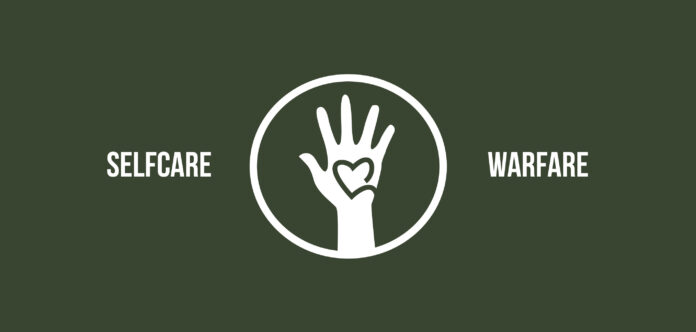In this last installment of Selfcare Warfare, I want to talk about something that I think is easily forgotten in conversations regarding privilege and social justice issues. It’s something that I’ve caught myself failing to account for and emphasize in every discussion of oppression I’ve attempted to engage in so far: intersectionality. Coined by black legal scholar Kimberlé Crenshaw in 1989, the concept and its accompanying theory has been abuzz amongst many involved with social justice work but has, from what I’ve seen, failed to reach the mainstream. Intersectionality is a difficult thing to think and talk about because of how it makes the many different identities we inhabit a reality. But hold on, I’m going to try and explain intersectionality to you and figure out how it fits within the concept of self-care that I’ve been blabbering on about these last nine weeks.
So what is intersectionality?
In the simplest of terms, intersectionality is a tool that looks at the ways in which various acts of oppression work together to shape our lived experiences. Because none of us hold only a single identity, intersectionality attempts to account for the ways that our gender, sexuality, race, ethnicity, citizenship status, nationality, ability, economic status, education level, etc., work together to both privilege and marginalise us. It recognizes, for instance, that I’m not just a queer person: I’m also Filipinx, college-educated, middle class, able-bodied, English-speaking and a whole host of other things I don’t have the time or room to list (though you should also start thinking about the multiple identities that you inhabit). These generate a specific lived experience.
So what exactly does intersectionality have to do with the process of unlearning that I’ve been calling “politicized selfcare” for the last nine weeks?
When we think of selfcare as a method of attempting to unlearn oppressive behaviours and ideologies, then intersectionality matters a lot. Because these oppressive ideas interact with one another to privilege certain lives over others and modes of being over others. For instance, linking together the columns I wrote regarding racism, femme-phobia and transphobia, when we talk about the death of trans women in the US we so often focus on the story of Leelah Alcorn. We erase the fact that long before Leelah Alcorn’s tragic suicide occurred, the trans women of color (mostly black trans women) like Islan Nettles, Zoraida Reyes, Yazmin Vash Payne or Penny Proud have experienced violence that either led to their murder or death. This is not to say that Leelah’s death wasn’t tragic or that it doesn’t matter, but when the murders of various trans women of colour do not spark a larger conversation of trans rights and violence against the trans community there seems to be something larger at work.
What I want to say is that when we think about the movements that we support or the issues that we care about we so often forget to think critically about what is happening. When we participate in social justice movements that so often iconify white faces we forget that there are a diverse amount of experiences that are forgotten. We so often normalize the deaths and violences of people of colour and simplify issues like trans violence to only talking about suicide and death of family unacceptance that we forget that trans women on the streets are harassed, murdered and raped – and that this happens disproportionately to trans women of color than white trans women. We so often talk about marriage equality as if it will become a huge win for the LGBTQIA+ community when marriage equality only benefits cisgender lesbian and gay individuals, and even then only a specific kind of cisgender lesbian or gay individual. We forget that the issues are more complex than how they already appear. We forget the intersecting nature of oppressions and how they reproduce and constitute one another in different forms.
We forget the messiness of it all.
But if we are to critically unlearn internalised oppressive ideas and behaviours we need to critically reflect and analyse ourselves and our understandings and how they intersect with one another. We need to think intersectionally and critically in order to foster better, more compassionate communities and selves.
On that note, I think I’ll end my column with this: we need to think more critically about ourselves and those around us, but not so harshly that we denigrate our own and others’ being. We need to think, understand and move on with that knowledge. I hope you’ve enjoyed this column as much as I have and I hope that this has been as reflective for y’all as it has been for me.
Contact Gilbert Gammad at gdgammad@ucdavis.edu




